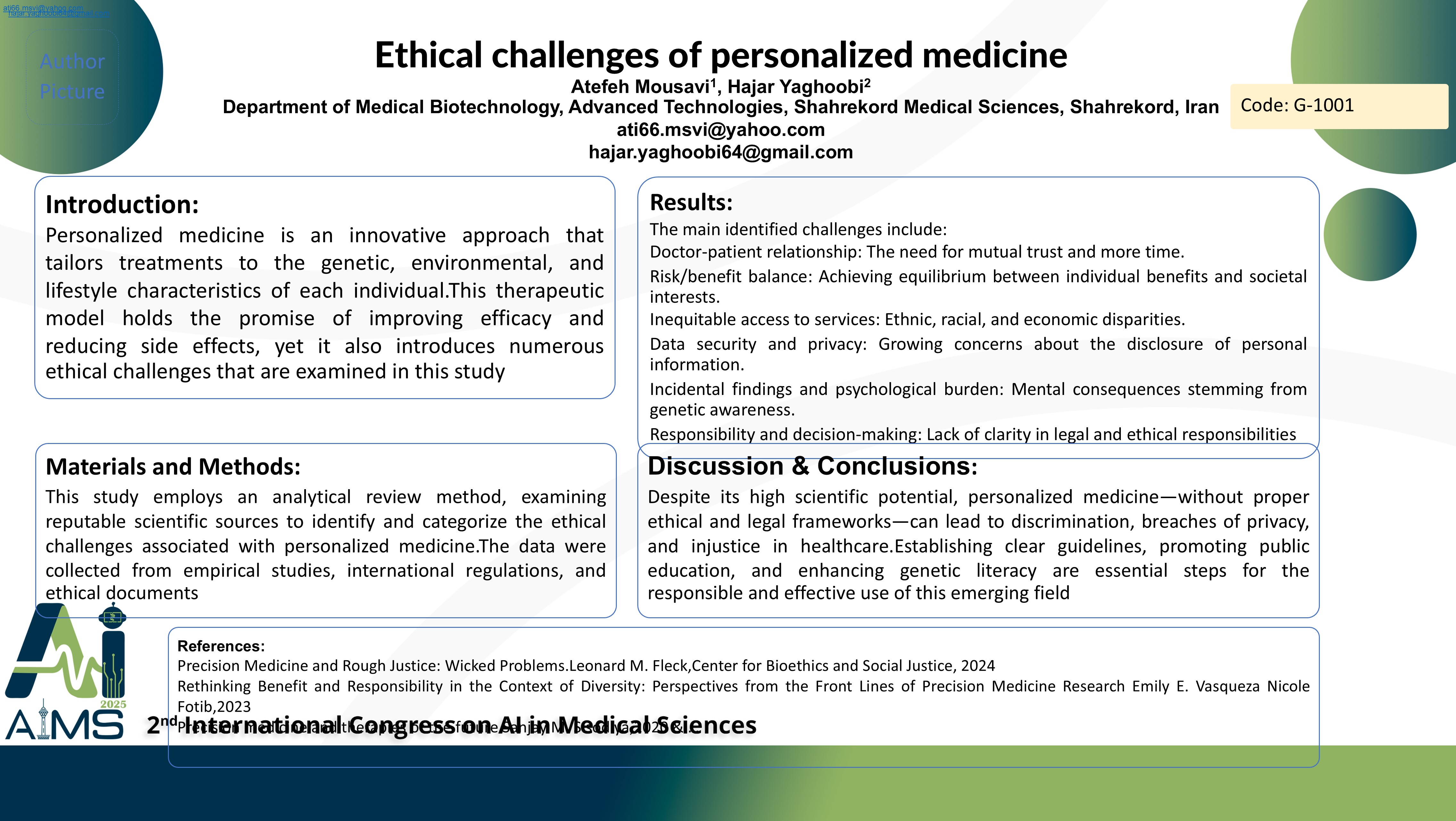Ethical challenges of personalized medicine
Code: G-1305
Authors: Atefeh Mousavi * ℗, Hajar Yaghoobi
Schedule: Not Scheduled!
Tag: Cancer Diagnosis & Treatment
Download: Download Poster
Abstract:
Abstract
Background and aims: Advancements in medical sciences and biotechnology have led to the emergence of personalized medicine, a revolutionary approach that tailors treatment based on an individual’s genetic, environmental, and lifestyle factors. While this method enhances treatment efficacy and minimizes adverse effects, it raises significant ethical concerns. This study aims to explore the primary ethical challenges associated with personalized medicine, including data privacy, accessibility, physician-patient relationships, and unforeseen genetic findings. Method: This research employs a qualitative approach, analyzing existing literature, ethical frameworks, and case studies related to personalized medicine. The study examines regulatory policies and ethical considerations, focusing on confidentiality, informed consent, and equitable access to treatment. Results: Findings reveal that personalized medicine, despite its benefits, poses challenges such as potential discrimination in healthcare access, difficulties in ensuring patient autonomy, and risks related to genetic data security. Additionally, the lack of universal ethical guidelines exacerbates these issues, necessitating comprehensive policies to address emerging concerns. Conclusion: To fully leverage the advantages of personalized medicine while mitigating ethical risks, there is an urgent need for robust regulatory frameworks, enhanced physician-patient communication, and public awareness initiatives. Implementing standardized ethical guidelines can promote fairness, protect patient rights, and ensure the responsible integration of personalized medicine into healthcare systems.
Keywords
Personalized Medicine, Medical Ethics, Bioethics, Genetics
